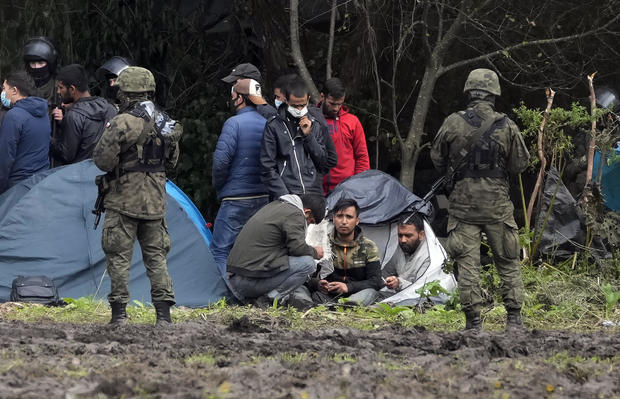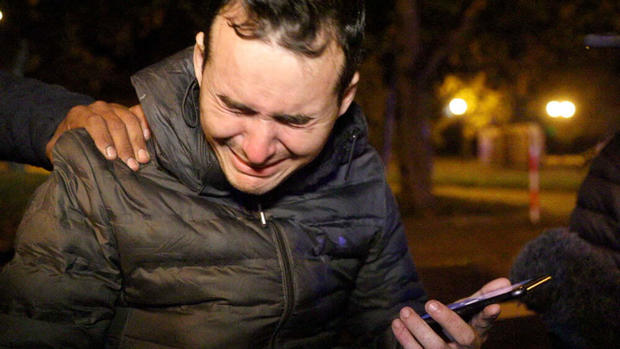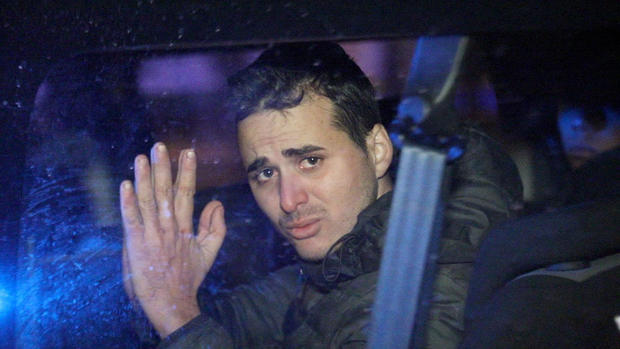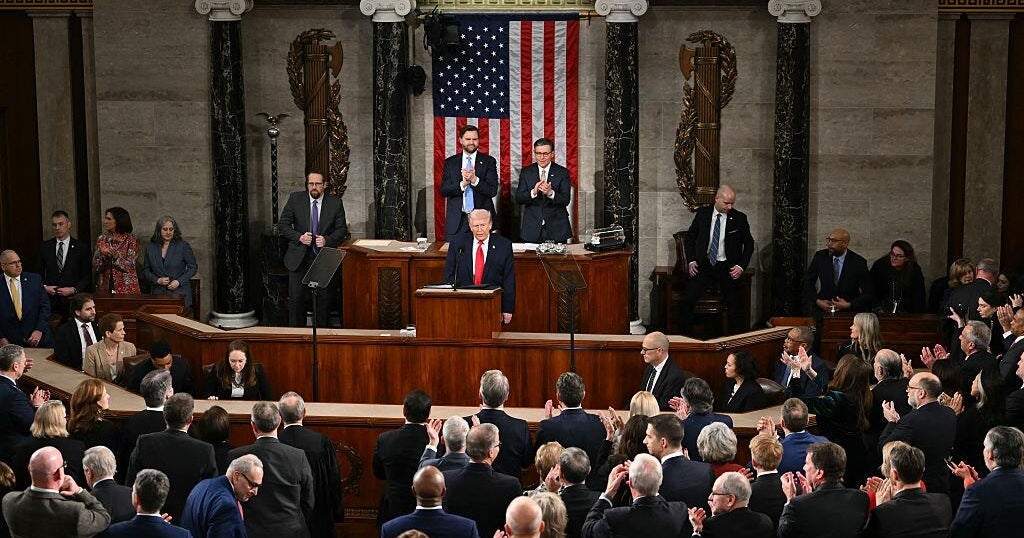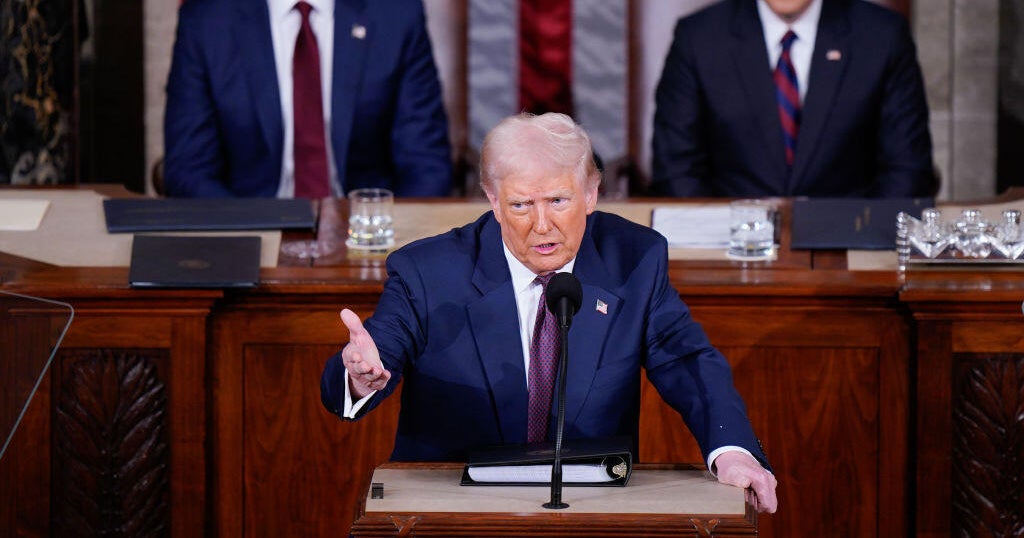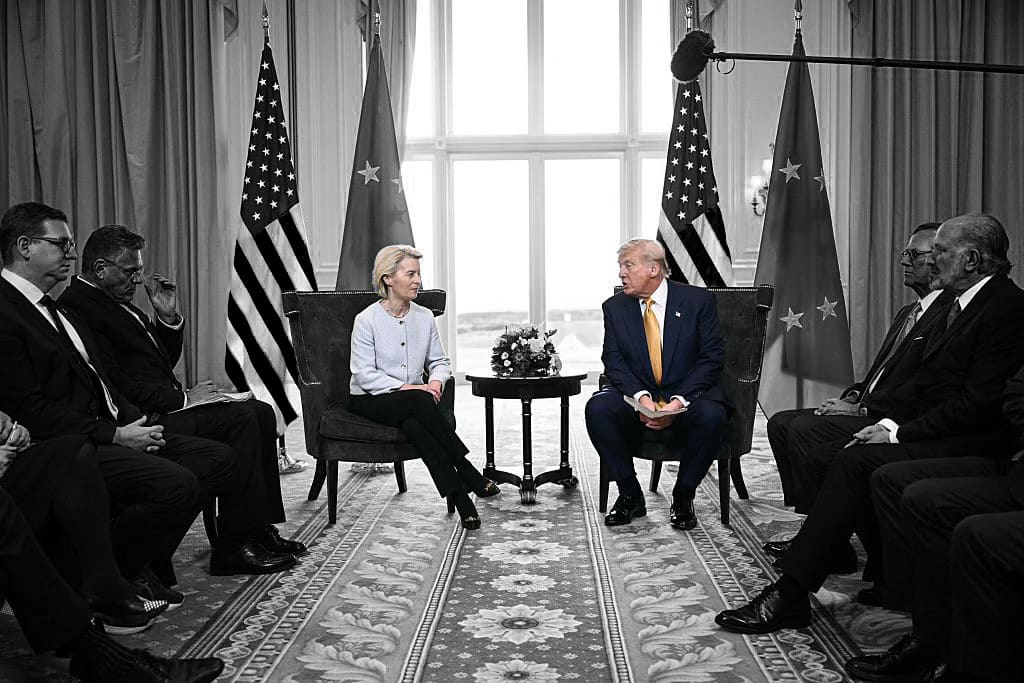Migrants and refugees caught up in Belarus-EU "hybrid warfare" are freezing to death in no man's land
Sokółka, Poland — As you approach the Poland's border with Belarus, an automatically-generated text message pops up on your cell phone. It warns any refugees to turn around.
"The Polish border is sealed. Belarussian authorities told you lies. Go back to Minsk!" reads the advisory, adding: "Don't take any pills from Belarusian soldiers."
On a small strip of land along the Polish-Belarusian border a battle is being waged, not with guns and ammunition, but with human lives.
In the span of just two months, more than 10,000 migrants have tried to cross from Belarus into Poland — an entry point to the European Union. The migrants are mainly from Iraq and Syria, but they also come from Africa and even as far away as Cuba. At least five of them have reportedly died in the last three weeks alone — victims of the dire conditions in the frozen swampland and forests between the two countries.
Determined to keep out refugees, the Polish government has deployed thousands of troops to the border, erecting checkpoints and razor-wire fencing along the frontier. Poland's government has also declared a state of emergency, which has effectively created a media blackout zone.
The European Union has accused Belarus of an organized campaign to encourage migrants from crisis regions including Afghanistan, Syria and Iraq to fly to the country on tourist visas, and then travel onward to the borders of Poland and the country's other neighbors, Lithuania and Latvia. The Belarusian authorities' aim, according to the EU, is to create instability in the region as punishment for EU sanctions against the authoritarian regime of Belarusian President Alexander Lukashenko.
EU leaders have called the Belarusian actions "hybrid warfare" against the bloc.
Lukashenko formally announced in late May that Belarus would no longer prevent migrants from traveling on to the EU, but European officials and migrants have reported overt efforts by Belarus — including travel advertising in Middle Eastern nations — to lure desperate people into the trap.
On Friday, Poland's government formally summoned the Belarusian charge d'affaires in the country to discuss the situation at the border.
But it is the refugees caught in the middle of the diplomatic dispute, and Poland has made it abundantly clear that they are unwelcome.
Human rights groups accuse Poland of "push-backs" — essentially escorting migrants to the border and then forcing them back into Belarus, which is illegal under international law. The Polish government had to amend its own laws earlier this year to be able to return migrants to the Belarusian border after they'd made it across.
Kalina Czwarnóg works for the Polish human rights advocacy organization "Ocalenie," which has been trying to help migrants at the border. She says it has been made more difficult by Poland's policies.
"Unfortunately, we can't go into the zone of the emergency state, we can only operate outside of it," she told CBS News. "So, if we will be contacted by a person or by a group of people on the move that need some kind of help, they give us their location and we run to the car and we go. And we try to look for them in the woods or in the swamps and, if we are lucky, we can meet them before the border guards."
The group's focus is to provide essentials — food, water, warm clothes and legal help. Every migrant is urged to sign a paper giving power of attorney to a member of an NGO, and to proclaim their desire for asylum in Poland. After meeting migrants and seeing to their immediate needs, Ocalenie and other NGO's call the Polish Border Guards, and then the migrants fate is in the Polish authorities' hands.
Near the edge of the forest in the Polish border town of Sokółka, CBS News found two migrants from Cuba who had made it into the country, hoping to claim political asylum in the European Union. Raydel Aparicio Bringa and Daniel Machado Pujol told us they'd been returned from Poland to Belarus twice already.
We watched as they pleaded with Polish officers not to be sent back again.
"Please no Belarusia, not back to Belarusia," one of the men said. The Cubans claimed that if they were sent back, the Belarusian soldiers on the other side would beat them, and then send them right back to Poland.
The Polish authorities gave them food and water. One officer reassured the weary men: "Okay, okay, no Belarusia." But then they took them away, out of sight of our camera, to a local processing station.
The border guards insisted that they were taking the men to safety, but according to the human rights groups and migrants we spoke to, this is when the process of illegal push-back begins: After night falls, the migrants are often forced back across the border by Polish authorities.
In Białystok, about 30 miles from the border inside Poland, we met a Syrian refugee who said he had been told back in Syria that it was possible to go Belarus and then cross into the European Union. The man, who didn't want to be identified, said the supposed route into the EU was all over the news in his home country, and there were travel posters and travel agents touting easy tourist visas for Belarus. He was told the journey across the border into Poland, and then on to his family's final intended destination in Germany, would be easy.
So, he and his family flew to Belarus and then drove to the Polish border. But when they made it into Poland, they realized they had been sold a lie. They're still there, hoping to be granted asylum.
Polish human rights lawyer Marta Gorczynska has been following the border crisis since August, and she says the EU must act.
"We're talking about the external EU border right now, it's not just the crisis that is happening at the border of Poland — it is a crisis that is happening at the external borders of the EU, so the EU should act," she told CBS News. "And it should act immediately, because if they don't, we will see more deaths."
There has been no EU intervention so far, and as long as this hybrid warfare, using innocent migrants and refugees as fodder, continues, and temperatures continue to drop, the situation on the border will only get worse.
